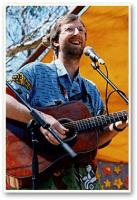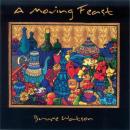Twenty thousand died in the war without a name
You won't find it in the history books, but it happened just the same
I'm talking reconciliation, I'm not talking blame
Till we understand our history we'll be bound by these chains
How could we sing "Lest we forget"
When we never knew, when we never knew
How could we sing "Lest we forget"
When we never knew, we never knew
In a thousand country towns across this ancient land
In pride of place with solemn grace the war memorial stands
For those who fell across the seas, from Vietnam to France
But not for those who died at home defending their own land
How could we sing "Lest we forget"
When we never knew, when we never knew
How could we sing "Lest we forget"
When we never knew
…we never knew
[Spoken:] The following account was written by a member of a 'punitive expedition' mounted in response to the death of a squatter by spear: They slept soundly, those blacks. We were within revolver shot before our presence was discovered - and then it was too late. Many of them were wiped out before they could gain their feet. Panic stricken, they offered no resistance. How those gins and kiddies shrieked when we got among them. Nothing with a black hide escaped that night… In daylight, we returned to view our work of vengeance. Bucks, gins and piccaninnies were lying dead in all directions. And not a thing in the camp moved or breathed.
(Townsville Herald, 2 February 1907)
There's a thousand more such stories, but seldom they've been told
We read instead in schoolbooks of pioneers bold
For those who knew the awful truth were silent or ignored
And thus this land was settled and prosperity enjoyed
How could we sing "Lest we forget"
When we never knew, when we never knew
How could we sing "Lest we forget"
When we never knew
…we never knew
Twenty thousand died in the war without a name
You won't find it in the history books, but it happened…just the same.
You won't find it in the history books, but it happened just the same
I'm talking reconciliation, I'm not talking blame
Till we understand our history we'll be bound by these chains
How could we sing "Lest we forget"
When we never knew, when we never knew
How could we sing "Lest we forget"
When we never knew, we never knew
In a thousand country towns across this ancient land
In pride of place with solemn grace the war memorial stands
For those who fell across the seas, from Vietnam to France
But not for those who died at home defending their own land
How could we sing "Lest we forget"
When we never knew, when we never knew
How could we sing "Lest we forget"
When we never knew
…we never knew
[Spoken:] The following account was written by a member of a 'punitive expedition' mounted in response to the death of a squatter by spear: They slept soundly, those blacks. We were within revolver shot before our presence was discovered - and then it was too late. Many of them were wiped out before they could gain their feet. Panic stricken, they offered no resistance. How those gins and kiddies shrieked when we got among them. Nothing with a black hide escaped that night… In daylight, we returned to view our work of vengeance. Bucks, gins and piccaninnies were lying dead in all directions. And not a thing in the camp moved or breathed.
(Townsville Herald, 2 February 1907)
There's a thousand more such stories, but seldom they've been told
We read instead in schoolbooks of pioneers bold
For those who knew the awful truth were silent or ignored
And thus this land was settled and prosperity enjoyed
How could we sing "Lest we forget"
When we never knew, when we never knew
How could we sing "Lest we forget"
When we never knew
…we never knew
Twenty thousand died in the war without a name
You won't find it in the history books, but it happened…just the same.
Contributed by giorgio - 2009/9/30 - 19:16
×
![]()
Note for non-Italian users: Sorry, though the interface of this website is translated into English, most commentaries and biographies are in Italian and/or in other languages like French, German, Spanish, Russian etc.





Album: A Moving Feast
Lyrics and music by Bruce Watson
Bruce writes:
"Inspired by the work of historian Henry Reynolds, who calculated the figure 20,000. This figure includes only solidly documented deaths through deliberate acts of murder or 'warfare'. These numbers were often understated, and many incidents were not documented. And then there are the hundreds of thousands killed by disease."